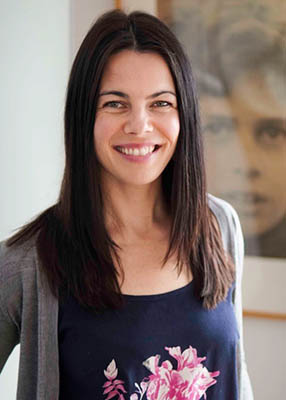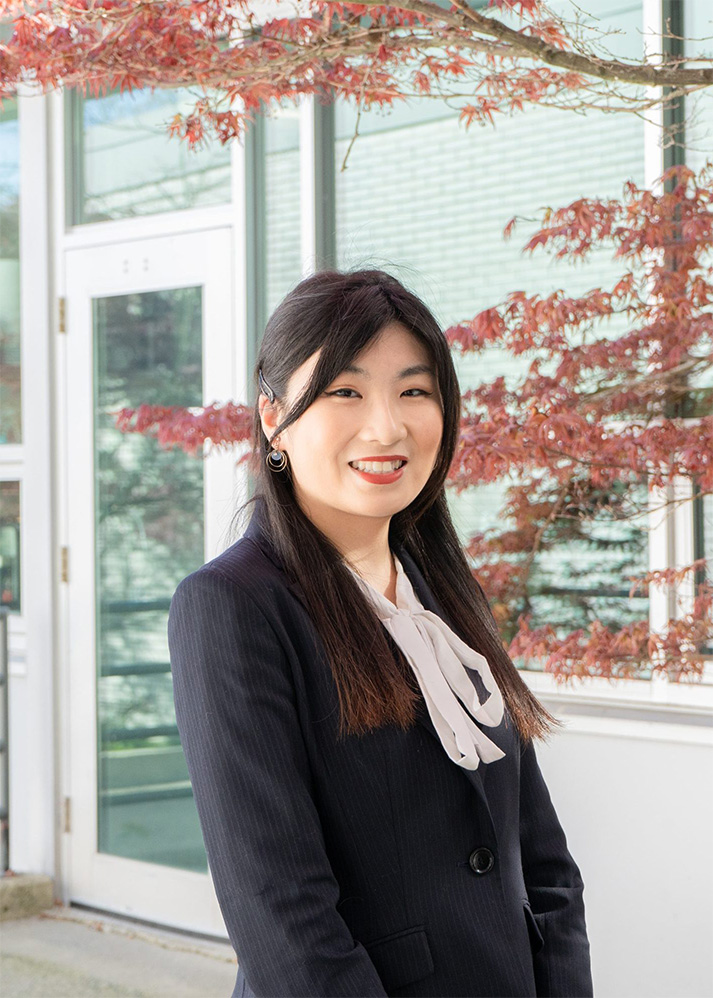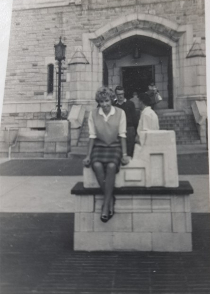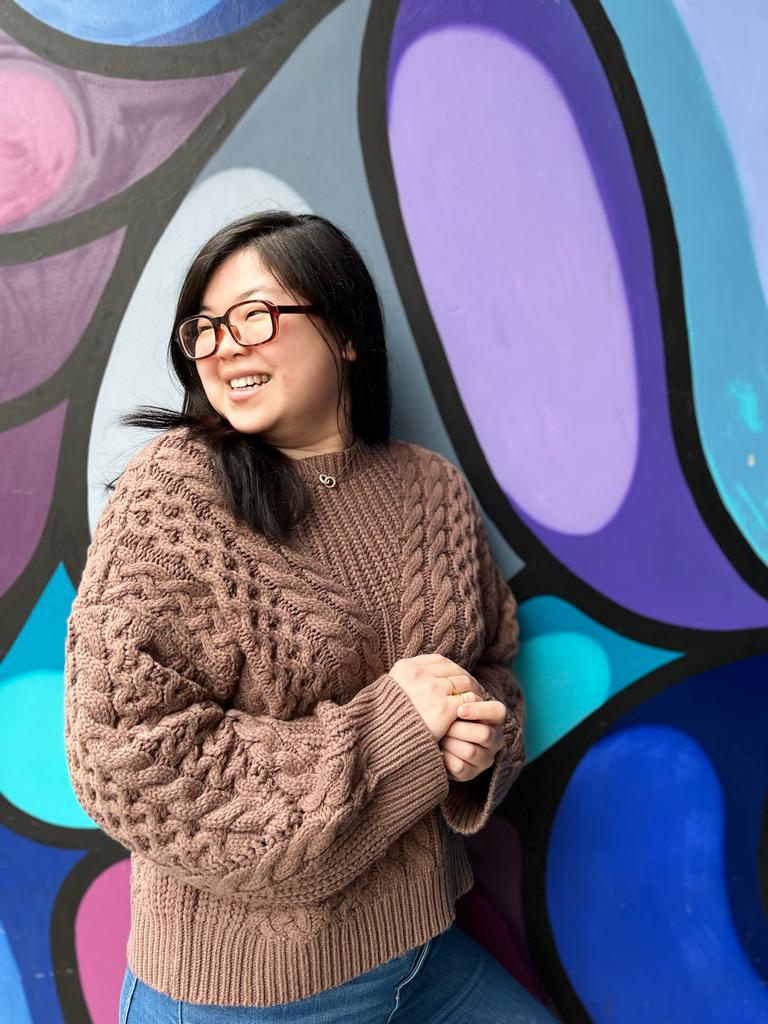Julia Boyle

Why did you choose your program at UBC and what did you enjoy most about it?
My favourite course in high school was Sociology. I’ve always wanted to work in the social services sector. I am very curious about people and also really love helping people.
What were some of your most meaningful experiences at UBC?
The most valuable part of being at UBC was being exposed to so many different people. It expanded my mind and helped me understand the scope of what the world had to offer me, and what I had to offer the world. All these experiences propelled me to travel for over a decade, which has been one of the most meaningful aspects of my life.
What choices did you make at UBC that contributed to your career success / journey?
Going to class regularly. Learning the basic skills of research and writing. Finding ways to apply my lessons to everyday life to improve my memory retention. Getting curious about my courses and taking learning to my life outside of the class.
What was your first job after graduation and what other jobs did you have before your current position?
I worked at a Group Home for youth. Check out my LinkedIn profile for more info!
Is your current career path as you originally intended? What challenges did you face in launching your career?
Yes. I always wanted to be the leader of a nonprofit. I worked for years as an international volunteer and/or intern. Breaking into a paying position took time, but once I did, I moved up quickly.
What do you like about your current job and what do you find challenging? How does it relate to your degree?
- I love working with people and helping them to grow. I learn a lot in my current role and am growing a lot.
- I like the diversity of my job and get to do a lot of different things.
- I like putting stronger systems in place to support the sustainability of AutismBC.
- I like doing community-level work and being able to connect with the people we are supporting.
- I find recruitment and onboarding, training staff challenging. This is mostly due to staff turnover.
- Meeting our financial revenue targets can also be stressful.
- You need high emotional intelligence to be a good leader, my degree helped me with that.
From your experience, what has been the value of having an Arts degree?
- You have lots of options.
- Learning how to think critically.
- Learning how to write well.
- Learning to deal with deadlines and stress.
- Learning to read and synthesize information.
- Learning to think logically and value evidence, science, validated information.
What advice would you give to students and alumni interested in breaking into your industry?
Volunteer in job-related roles or start your own initiatives/projects. Find a way to get experience.
What advice would you give your graduating self?
- Build up your network of people from all different industries and walks of life.
- Find a way to stay in touch throughout the years.
- Don’t worry so much about being competitive or what other people are doing.
- Focus on learning about yourself, your interests and passions and you’ll find your way.
- Stay positive, but lean into challenging yourself.
Julia Boyle



Why did you choose your program at UBC and what did you enjoy most about it?
My favourite course in high school was Sociology. I’ve always wanted to work in the social services sector. I am very curious about people and also really love helping people.
What were some of your most meaningful experiences at UBC?
The most valuable part of being at UBC was being exposed to so many different people. It expanded my mind and helped me understand the scope of what the world had to offer me, and what I had to offer the world. All these experiences propelled me to travel for over a decade, which has been one of the most meaningful aspects of my life.
What choices did you make at UBC that contributed to your career success / journey?
Going to class regularly. Learning the basic skills of research and writing. Finding ways to apply my lessons to everyday life to improve my memory retention. Getting curious about my courses and taking learning to my life outside of the class.
What was your first job after graduation and what other jobs did you have before your current position?
I worked at a Group Home for youth. Check out my LinkedIn profile for more info!
Is your current career path as you originally intended? What challenges did you face in launching your career?
Yes. I always wanted to be the leader of a nonprofit. I worked for years as an international volunteer and/or intern. Breaking into a paying position took time, but once I did, I moved up quickly.
What do you like about your current job and what do you find challenging? How does it relate to your degree?
- I love working with people and helping them to grow. I learn a lot in my current role and am growing a lot.
- I like the diversity of my job and get to do a lot of different things.
- I like putting stronger systems in place to support the sustainability of AutismBC.
- I like doing community-level work and being able to connect with the people we are supporting.
- I find recruitment and onboarding, training staff challenging. This is mostly due to staff turnover.
- Meeting our financial revenue targets can also be stressful.
- You need high emotional intelligence to be a good leader, my degree helped me with that.
From your experience, what has been the value of having an Arts degree?
- You have lots of options.
- Learning how to think critically.
- Learning how to write well.
- Learning to deal with deadlines and stress.
- Learning to read and synthesize information.
- Learning to think logically and value evidence, science, validated information.
What advice would you give to students and alumni interested in breaking into your industry?
Volunteer in job-related roles or start your own initiatives/projects. Find a way to get experience.
What advice would you give your graduating self?
- Build up your network of people from all different industries and walks of life.
- Find a way to stay in touch throughout the years.
- Don’t worry so much about being competitive or what other people are doing.
- Focus on learning about yourself, your interests and passions and you’ll find your way.
- Stay positive, but lean into challenging yourself.



